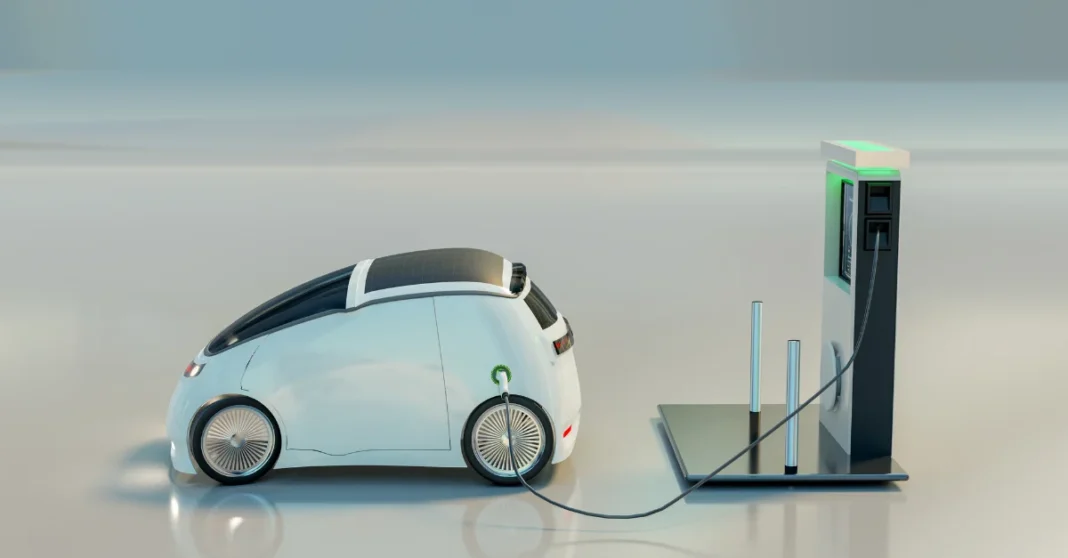Introduction
As electric vehicles (EVs) continue to gain popularity, many consumers are drawn to the promise of sustainability and lower running costs. However, one of the most common questions about EVs is whether they are truly more affordable than traditional gasoline-powered cars over time. While the initial purchase price of electric cars has traditionally been higher, there are numerous factors that can influence their long-term economic viability. In this blog post, we’ll break down the economics of EVs and explore whether these cars are really a better financial choice in the long run.
1. The Initial Purchase Price: Are EVs More Expensive Upfront?
One of the most notable differences between electric vehicles and traditional cars is the upfront cost. Generally, EVs have a higher initial price tag, mainly due to the cost of their batteries. However, as battery technology improves and production scales, these costs are slowly decreasing.
Factors influencing the initial cost:
- Battery size and range: Larger batteries typically drive up the cost.
- Brand and model: Premium brands like Tesla and Rivian can be more expensive compared to mass-market EVs like the Nissan Leaf or Chevrolet Bolt.
- Government incentives: Many countries offer tax rebates and incentives that can reduce the upfront cost of purchasing an EV.
Despite the higher initial price, the gap between EVs and traditional vehicles is narrowing as technology advances.
2. Fuel Savings: How Much Do You Really Save on Charging vs. Gas?
One of the main advantages of owning an electric vehicle is the cost savings on fuel. Charging an EV is generally much cheaper than filling up a gas tank, but the exact savings depend on several factors:
- Electricity costs: The price of electricity varies by region and utility company, but on average, charging an EV is 60-70% cheaper than refueling a gas car.
- Home charging vs. public charging: Charging your EV at home is typically the most cost-effective option, but public charging stations (especially fast chargers) can be more expensive.
- Range and efficiency: The more efficient your EV is in terms of energy consumption (measured as miles per kWh), the less you’ll spend on charging.
Example: In the U.S., it costs approximately $500 to $600 per year to charge an EV, compared to $1,500 to $2,000 annually for fueling a gas-powered car.
3. Maintenance and Repairs: Do EVs Save Money Over Time?
Electric vehicles generally have fewer moving parts than internal combustion engine (ICE) vehicles, which can result in lower maintenance costs. Here’s how:
- No oil changes: EVs don’t require oil changes, which can save you hundreds of dollars a year.
- Fewer mechanical parts: With no engine, transmission, or exhaust system, the risk of major mechanical breakdowns is lower.
- Braking system: EVs use regenerative braking, which reduces wear and tear on brake pads, extending their lifespan.
While the cost of replacing EV batteries can be high (ranging from $3,000 to $7,000 depending on the model), warranties typically cover battery replacement for 8 years or more, and prices for replacement batteries are expected to decrease over time.
4. Depreciation: Do EVs Lose Value Faster Than Gas Cars?
Depreciation is an important factor to consider when calculating the long-term affordability of a vehicle. Historically, EVs have experienced faster depreciation than traditional vehicles, largely due to concerns about battery life and range anxiety. However, the market is shifting:
- Increasing demand for used EVs: As EVs become more mainstream, the used EV market is growing, and their depreciation rates are becoming more in line with those of gasoline cars.
- Improving technology: As battery technology improves and range increases, used EVs are becoming more attractive to buyers.
- Government incentives: Many countries still offer rebates or tax credits on used EVs, which can make them more appealing.
While EVs may still depreciate faster than traditional cars in some markets, their resale value is improving as demand for used electric vehicles increases.
5. Tax Incentives and Rebates: How Much Can You Save Upfront and Over Time?
Governments around the world offer various incentives to encourage EV adoption, which can significantly impact the economics of owning an electric vehicle:
- Federal and local tax rebates: In the U.S., the federal government offers up to $7,500 in tax credits for qualifying EVs, and many states offer additional rebates or tax incentives.
- Exemption from tolls and fees: In some regions, EV owners benefit from toll exemptions, free parking, and reduced registration fees.
- Free charging: Some EV manufacturers and governments offer free or discounted public charging for early adopters.
These incentives can substantially lower the effective cost of an EV and shorten the time it takes to recover the higher upfront investment.
6. The Long-Term Picture: How EVs Compare Over 10 Years
When considering the total cost of ownership (TCO), including purchase price, fuel savings, maintenance, and resale value, many studies show that electric vehicles are more affordable over a 10-year period than their gasoline counterparts. Here’s why:
- Total cost of ownership: A study by Consumer Reports suggests that an EV could save you between $6,000 and $10,000 over 10 years compared to a gas-powered car, thanks to lower fuel and maintenance costs.
- Battery life improvements: EV batteries are lasting longer, with many modern EVs offering 200,000 miles or more before significant degradation.
As the EV market matures and technology continues to improve, the economics of EV ownership will only become more favorable.
Conclusion: Are Electric Cars More Affordable in the Long Run?
While the initial purchase price of an electric vehicle can be higher than a traditional car, the long-term savings on fuel, maintenance, and tax incentives make EVs an increasingly affordable option for many consumers. As battery technology improves, charging infrastructure expands, and EV prices continue to drop, the economic advantages of electric vehicles will only become more pronounced. For those looking to save on fuel and maintenance costs while contributing to a more sustainable future, electric vehicles are proving to be a smart long-term investment.
#EconomicsOfEVs #ElectricVehicles #EVsavings #EVCostComparison #SustainableTransport #ElectricCars#EVCostAnalysis #GreenTransportation #EVMarket

